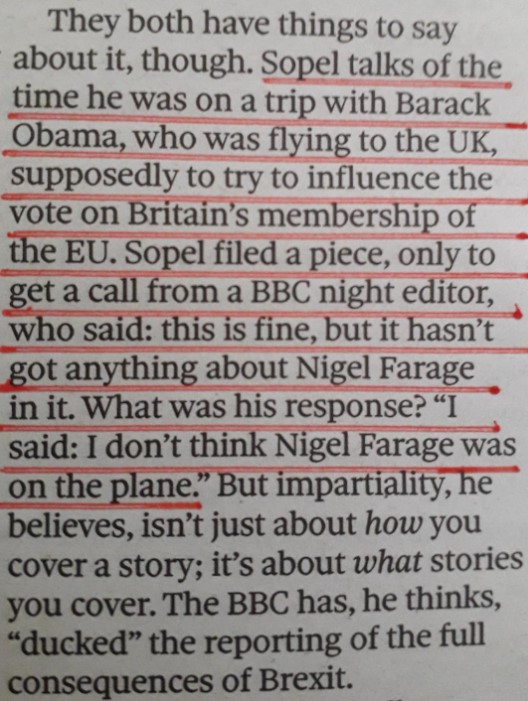On 29 October 2020, the BBC introduced new guidelines intended to establish greater impartiality among its employees across the organisation.
The BBC’s director general, Tim Davie, introduced the rules, which are designed to shore up the public perception of BBC impartiality, following long-running criticism pushed by rightwing media outlets about alleged biases of corporation staff.
In addition to strict new social media guidelines, Davie introduced a ban on the broadcaster’s news reporters taking part in “public demonstrations or gatherings about controversial issues” even when not marching under an identifiable BBC banner.
We know the reporting is often incredulous

but private lives of employees?
One area in which these new ‘no bias rules’ will affect employees at the BBC in particular is their ability to attend public gatherings. The guidelines state that “people working in news and current affairs and factual journalism should not participate in public demonstrations or gatherings about controversial issues”. Although the guidelines suggest that judgement is required as to what issues are ‘controversial’, they do assert that “it should be assumed that most marches are contentious to some degree or other.”
This article will look at what the employment law implications might be for the BBC’s new guidelines.
Discrimination
These guidelines may give rise to the issue of indirect discrimination under the Equality Act. Indirect discrimination occurs when an employer applies to an employee a provision, criterion, or practice (PCP) which is discriminatory in relation to a relevant protected characteristic of the employee. A protected characteristic will include, for instance, religion or belief and sexual orientation.
The PCP is discriminatory if:
- The employer applies it (or would apply it) to persons with whom the employee does not share the characteristic
- It puts (or would put) persons with whom the employee shares the characteristic at a particular disadvantage when compared with others who do not share the characteristic
- It puts (or would put) the employee at a disadvantage; and
- The Employer cannot show it to be a proportionate means of achieving a legitimate aim.
Therefore, the guidelines, which are a PCP and apply to all BBC employees, may be considered discriminatory where they prevent certain employees who have a protected characteristic, such as a religious belief or sexual orientation, from attending marches or demonstrations, thereby placing those employees at a particular disadvantage in relation to other employees who do not share the same religious belief or sexual orientation.
It may be that the BBC could argue that establishing impartiality or the appearance of impartiality across its organisation is a legitimate aim of the guidelines, and so the question of whether they are ultimately discriminatory is likely to depend on whether their implementation is proportionate. For instance, prohibiting an employee from attending a large demonstration in a personal capacity, who does not publicise their attendance nor indicates that they represent the BBC, may well not be proportionate.
Human Rights
Additionally, the European Convention on Human Rights (ECHR) is potentially relevant here, and in particular articles 8, 9, and 10, which give everyone the right to a private life, freedom of thought, and freedom of expression respectively. Under the Human Rights Act, which gives effect to the ECHR in UK law, the courts are required to interpret all legislation (including the Equality Act) in a way that is compatible with the ECHR.
Considerations
The BBC’s new no bias rules offer a useful example of how businesses can sometimes legitimately impose policies and guidelines that impact on their employees’ private lives. However, employers have to be careful of indirect discrimination and infringing their employee’s right to a private life. Often, as in this case, the determining factor as to whether there is discrimination is not necessarily the introduction of the policy, but how it is implemented in practice.
If you have, or are planning to introduce policies, that may impact on your employees’ private lives or could place a group of employees with a shared protected characteristic at a disadvantage, then please do contact me ([email protected]) so we can help assess your risk.
https://www.fsp-law.com/about/







